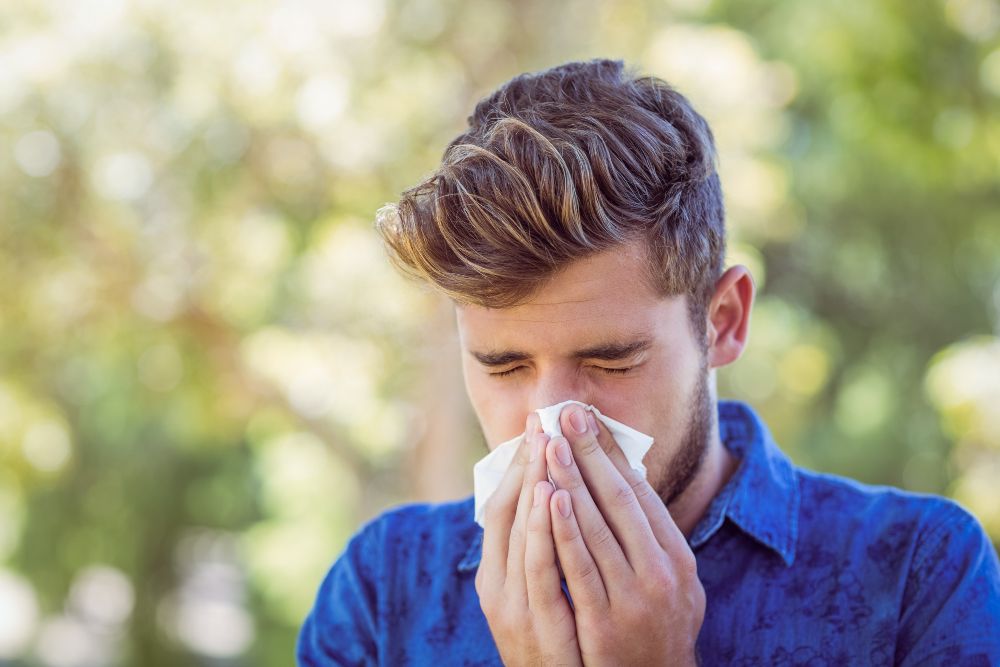
How to Take Care of Your Allergies With Ease
If your body becomes sensitive to a substance, it reacts by forming an allergic reaction. It might be pollen allergy or food allergy, but both types might drive you insane.
Allergies are accompanied by itchy ears, eyes, or throat. It might be hard to distinguish whether what you have is a cold or an allergy. If you have a cold, the symptoms will clear up in a few days, but allergic symptoms last for months. What will you do to take care of your allergy? Below are some tips which will help you cope.
Take your medication before symptoms start showing up
If you are allergic to pollen, start taking medication before the pollen season starts. If you are allergic to cold, start taking medication before winter starts. By taking medication earlier, your body will build tolerance before the symptoms show up.
Also, remember always to take your medication 30 minutes before you take part in any outdoor activities. As you go outside, always wear sunglasses to keep pollen away from your eyes. If your eyes are allergic, they are more sensitive to sunlight, so the shades also help. Dark glasses are the best to wear since they block as much wind pollen as possible.
Regularly consult with your physician if you feel that your medication no longer controls your symptoms. The physician will make the necessary adjustments to the medication.
Clean, clean and clean
By cleaning your house, you will be getting rid of any dust and pollen in your home. Replace your tiles, hardwood, or carpeted floors often. Also, remember the overlooked crannies and nooks like skirting boards and wipe them off regularly. If you are around a damp or rainy environment, always remember to be careful of mold.
The dust mite is one of the most common causes of indoor allergies, should also be taken care of. Use hot wash to kill dust mites. Regularly wash your bedding in hot water and dry it in a hot dryer to kill them. Also, keep stuffed animals away from your bed and wash your blankets and sheets at least twice a week in high-temperature water.
Blinds, curtains, and windows are places well-known for mold and dust hiding. They can also settle in old books, drain pans, refrigerators, basements, and poorly ventilated laundry rooms. Wipe your kitchen areas and down bathroom with diluted bleach and vacuum your floors often. If you are allergic to cleaning products apart from dust and mold, wear a mask as you clean and get out of the house after cleaning to let the air clear.
Treatment
Several medications can ease allergy symptoms. You could use these medicines in addition to an allergy prescription online if you are looking for an easy way to get your prescription. Below are some of them.
- Decongestants- oral decongestants like Afrinol give temporary relief to stuffiness in the nose. Decongestants can also be in the form of nasal sprays. Remember, you should only use nasal decongestants for several days in a row. If you use them for an extended period, the symptoms will worsen, and you will have rebound congestion.
- Oral antihistamines- antihistamines help by relieving a running nose, watery eyes, itching, and sneezing. Antihistamines include cetirizine and fexofenadine.
- Nasal spray- there are a variety of nasal sprays that ease allergy symptoms, and they don’t have harsh side effects. However, it is wise if you use nasal sprays before the symptoms show up.
- Combined medications- several allergy medications combine a decongestant with antihistamines. Fexofenadine is such an example.
- Saline solutions- rinsing the nasal passages with nasal irrigation or saline solutions is an effective, inexpensive, and quick way to relieve congestion in the nose. When you rinse directly, allergens and mucus are flushed from your nose. You could use a net pot or squeeze bottle for the rinsing. The water you are using should be sterile, distilled, cooled after boiling, or filtered. After each use, always remember to rinse the device you are applying for irrigation.
- There are more natural remedies that can be used to treat allergic symptoms. Examples include shrub butternut, honey, and spirulina. If your home remedies will not work, member to always consult a doctor.
When spring comes, people enjoy the blooming trees and flower buds, but to some people, the season is accompanied by bothersome allergic symptoms. Taking care of your allergy might be difficult, but before you settle for artificial turf, try making use of the tips above.


